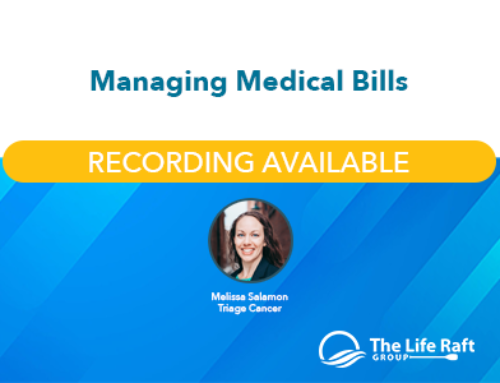Long distance caregiving
Caring for a family member or friend with cancer who lives far away has its unique challenges. All of the usual caregiving concerns about a loved one’s health and well-being may be intensified, since long-distance caregivers can’t be physically present to provide care at all times. It can be especially difficult to figure out how to provide high-quality care from afar, and to judge whether a situation can by managed over the phone or requires an actual visit. The following are suggestions for becoming more effective in this important role:
Research and assess needs. Gather as much information as possible about your family member or friend’s medical, financial and legal needs, and use this as a basis for making decisions regarding his or her care. Get a full medical diagnosis from the health-care team and talk with them about your loved one’s home care needs.
Explore and manage professional and volunteer services. Conduct research over the phone or on the Internet to find both paid and free community resources. Identify and contact relatives; neighbors; longtime family friends; and members of religious, civic, and social organizations who might be able to perform caregiving tasks. Ask the doctor, oncology nurse, or social worker for a referral for home care services. Home care services can range from administering chemotherapy at home to assisting with housekeeping and personal care.
Prepare for unexpected travel. Be prepared to “care commute,” if necessary. This would include investigating travel options in advance and having adequate backup help ready to care for your own family if you need to make an unexpected visit. Reserve some vacation or sick days from work for these visits as well.
Provide and seek emotional support. Reach out to a family member or friend with cancer through regular phone calls, letters, and e-mails to remind him or her of your constant love and support. It is also equally important for caregivers, near or far, to seek out support for themselves from family, friends, or a counselor to help deal with the emotions associated with this role. Many long-distance caregivers, for example, feel guilty for living far away from the person with cancer. They may feel overwhelmed by the challenges of arranging services long distance. Identify people who are sources of emotional support and meet with them on a regular basis.
Making the most of your visit
If you are available to periodically visit your family member or friend, consider the following suggestions. The key to a successful visit is planning ahead and using the time wisely to perform caregiving tasks that can’t be done from afar.
Meet with a member of the medical team. Set up an appointment with your family member or friend’s doctor, oncology nurse, or social work to discuss and make decisions about his or her medical care in person. It is important to include your loved one with cancer in the discussions with the medical team, if possible.
Meet with your family member or friend’s informal support network. Arrange for time to meet with your loved one’s informal support system, such as friends, neighbors, and members of community organizations, to further explore new caregiving resources. Ask them to contact you immediately if they have new information or identify a problem that may require assistance.
Phone Numbers. Bookmark a link to YellowPages and WhitePages. This way you can quickly find phone numbers when searching for local resources from home.
Schedule a break for the local caregiver. If possible, plan to take over some of the local caregiver’s responsibilities, so they can take a break from their routine. It will also provide the long-distance caregiver with the opportunity to reassess caregiving needs and resources.
Take time to reconnect. Schedule quality time with your family member or friend by participating in activities that you enjoy doing together.
Additional resources
National Family Caregivers Association
Family Caregiver Alliance: Handbook for Long-Distance Caregivers





